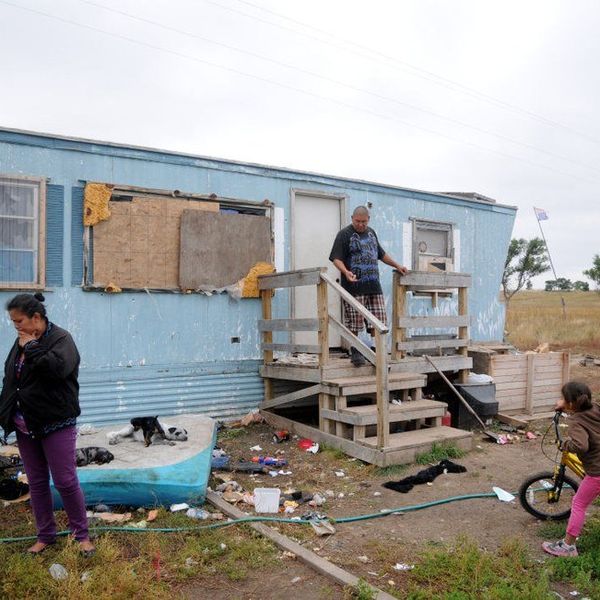On October 2, 1904, German General Lothar von Trotha decreed the egregious Vernichtungsbefehl (extermination order) of the Herero people from Southwest Africa - the foundation of an ideology of genocide:
I, the great General of the German soldiers, send this letter to the Herero people. The Herero are no longer German subjects. . . . The Herero nation must...leave the country. If they do not leave, I will force them out with the Groot Rohr (cannon). Every Herero, armed or unarmed...will be shot dead within the German borders. I will no longer accept women and children, but will force them back to their people or shoot at them.
Before we get too ahead of ourselves, let's start from the beginning: Ever since Europeans first began traveling to and discovering Africa, it has unapologetically and brutally raided it for all of its resources - from actual human bodies to rare, treasured minerals materials. In extracting these resources, Europeans began colonizing inside certain tribes in Africa in the nineteenth century, in what is now known as the Scramble for Africa. What was at first seen as peaceful relations eventually turned volatile as Europeans began providing military weaponry to Africans - which led to lethal violence being a common solution amongst African Tribe relations.
Beginning halfway through the nineteenth century, German missionaries began arriving in Southwest Africa (modern day Namibia), eventually seizing all of it in 1884 under the command of Chancellor Otto von Bismark and subsequently enforcing German rule in 1894 by bringing Schutztruppe (imperial soldiers) into their newly stolen territory.
Initially, most German were tolerated as they acted as mediums between warring tribes, often offering military support to different ones - as violence between the tribes only strengthened Germans dominance.
The Namaqua and Ovaherero people were the most powerful of the thirteen tribes within the Namibia state. The Germans depended on the two tribes to trade cattle and protected their land; this caused tension amongst German settlers and local tribes as Germans sought a need for an expansion in lebensraum (living space) for the their people. In attempt to advance this, the Germans aggressively negotiated policies which would greatly shrink Ovaherero territory; however, the tribal chiefs would not sign.
There was also a cattle-virus epidemic which killed much of their livestock and caused tribal farmers to assume large sums of debt to colonists and when the debts were not able to be repaid, their land and cattle was taken away from them by the Germans.
As a result of the built up tension and German violation of property rights, riled up Germans attacked the Herero's on January 12, 1904, in what is essentially the capital of all of the Ovaherero land. Ovaherero responded in killing 126 German soldiers and military combat dragged on until June 11, when General Lothar von Trotha arrived to take charge over everything from the colonial governor, Theodor Leutwein.
Two months later on August 11, around 6000 Ovaherero warriors were surrounded by heavily armed German troops and officers. The Ovaherero people were forced to flee into the inhabitable dessert to the east.
General von Trotha was a savage leader, denying women and children water who returned to beg for it and further denying negotiations with the Herero people. His relentless, unforgiving nature is embodied in his "Words to the Herero People" on October 2, 1904 (return to top to read), In another letter, General von Trotha made his genocidal motives blatantly clear with his letter to Governor Leutwein:
I know enough of these African tribes. They are all alike insofar as they only yield to violence. My policy was, and still is, to perform this violence with blatant terrorism and even cruelty. I finish off the rebellious tribes with rivers of blood and rivers of money.
Only after two months of tracking down and killing Herero's, poisoning waterholes and encapsulating them within the desert did Chancellor von Schlieffen order a loosely inclusive pardoning of all Ovaherero (after encouraging enslavement of the people).
The body count still persisted to buildup overtime and in 1905, the Ovaherero were subject to Leidenszeit (period of suffering), where they were submitted into concentration camps so that the Germans could ensure that another revolt would not occur. Majority of those within these camps were woman and children, as a vast majority of men and all alike had died in either combat, of starvation, as a result of the unlivable conditions within the dessert or of the poisoning of wells.
By the time the concentration camps were implemented, 80% (or around 95,000) of the Herero people had been vanquished. A similar fate was shared by the Namaqua who also rebelled soon after the Ovaherero for similar reasons, having 10,000 of their people slain. This left only around 15,000 people from both tribes collectively to bear the harsh conditions of imprisonment in heinous concentration camps.
As a result of the harsh conditions within the camps, around 45-74% of the 15,000 died as a result.
To further the gruesome nature of the Germans colonists, anthropologist and geneticist Eugen Fischer visited the concentration camps and conducted "race experiments," where he took samples of Herero children - dead or alive - as well as that of mixed children with German fathers. 300 skulls from prisoners from the camps were also sent to Germany for German scientists to study and further the false narrative of white superiority.
Eugen Fischer eventually wrote a book called "The Principles of Human Heredity and Race Hygiene" where he concluded that African and mixed children were physically and mentally inferior to full fledged Germans. This book was read by Hitler while he was imprisoned in 1923 and served as a primary motivational tool in his pursuit of "racial purity".
The Aftermath
Germany remained in control of Southwest Africa until after the First World War where the colony was placed under the control of South Africa and its own system of apartheid. The United Nations recognized the colony as Nambia in 1968 and in 1990 South Africa finally forfeited all control.
Of the 2 million currently inhabiting Namibia, majority are poor and around 50% of those who are well off are simply reaping the benefits of their ancestors illegally seized territories.
In 1985, The Whitaker Report of the United Nations classified this “slaughter as an effort to extinguish the nations of Herero and Namaqua and therefore the first genocide of the 20th century.” Since then, many German officials have visited Namibia, some have finally formally apologized the act and expressed deep sorrow for the descendants of the Ovaherero and Namaque people, but what remains to be seen is any discussion of reparations or an actual agenda to right the wrongs committed; and until this conversation is had on an international scale where everyone is held accountable, this tragedy will never be made right.





















